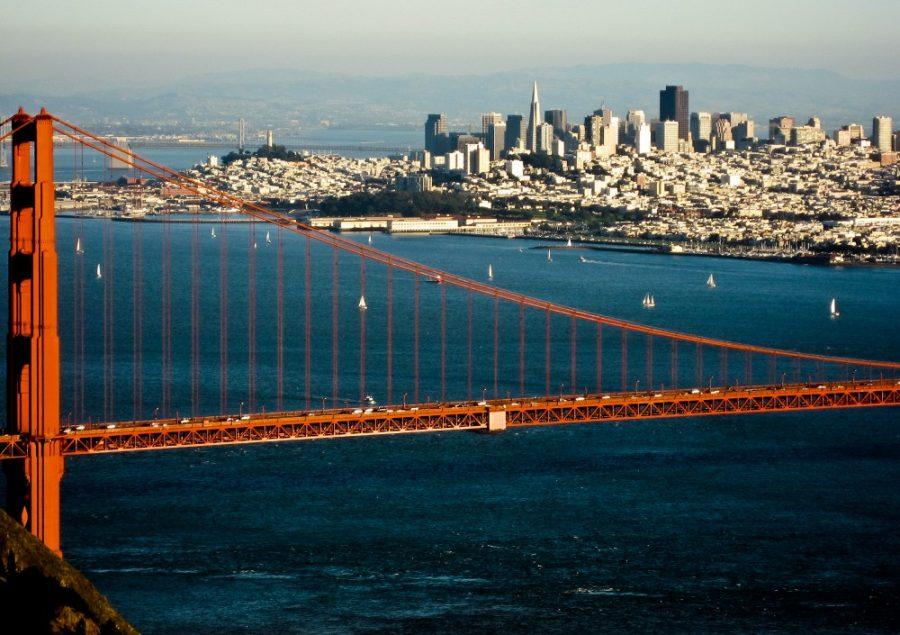In one corner we have California, the heart of the West, the most populous state of the Union and the home of Hollywood and Silicon Valley.
And in the other corner we have Arizona, the copper mining, O.K. Corral shooting, Grand Canyon hiking border state.
Although united by a common American heritage and a joint hatred of the New York Yankees, these two neighbors have been experiencing a bit of a spat over the issue of immigration for the past eight years, and the feuding has only become more personal in recent months.
The problems make sense at surface level. Even though both states are in the western region, they could hardly be more different politically.
California is famous across the country for its liberal take on illegal immigration, with over 80 percent of Californian’s supporting a path to citizenship for those residing illegally in the state. California Governor Jerry Brown even signed a bill, over White House objections, officially designating California as a “sanctuary state”, meaning that illegal immigrants would be granted special protections and not be at the same risk as in others states to face deportation or punishment.
But across the Colorado River, Arizona has instead made a name for itself by leading the anti-illegal immigration and pro-border wall pack. The Grand Canyon state made headlines back in 2010 when the State House and Senate passed SB 1070, which has been called the “toughest” anti-illegal immigration law in the country. SB 1070 not only made it a misdemeanor for non-citizens to be in the state without a passport or identification on them at all times, but allows law enforcement to identify and inquire about the immigration status of anyone they have “reasonable suspicion” to be in the country illegally.
This started a wildfire across the United States, as well as abroad, with U.S. senators and representatives alternately supporting the reasonable suspicion clause as a justified defense against people who are knowingly breaking federal law, or condemning it as an unconstitutional use of racial profiling.
It was SB 1070 that started this whole chain reaction, as in response to its passage, then San Francisco Mayor Gavin Newsom supported the city councils vote to boycott the entire state of Arizona.
RELATED: OPINION: Gov. Ducey forges own path on gun control
You heard that right, since 2010, San Francisco has been boycotting a state inside the USA. Newsom went on to become the Lieutenant Governor of California, but San Francisco has continued the fight, even if in name only.
Legally speaking, the city ordinance bans the travel of city employees to Arizona, and puts a moratorium on all contracts with the state. But in reality, this ordinance is often ignored or purposefully flouted, as Mayor Mark Farrell traveled to Phoenix to meet with Arizona legislators and watch a baseball game just this month.
But not to be outdone in pettiness, Pima County’s very own Representative Martha McSally (AZ-R) was quoted saying, “As we look in Arizona, we often look into the dangers of the southern border. But if these dangerous policies continue out of California, we might need to build a wall between California and Arizona as well.”
She even said to Fox News that California Governor Jerry Brown was endangering the rest of the country with his immigration policy and again echoed the possibility for another wall to our west.
After some responses on the left to her comments, McSally affirmed that her comments were meant mostly to be humorous, but still described California state laws as allowing “violent, criminal” immigrants to wreck havoc unchecked. McSally has been known to talk like this before, and she’s not one to mince her words, but this kind of left-right antagonizing and baiting does nothing but make us stop listening to each other.
Even if the San Francisco boycott is in name only, and even if McSally is only messing around by calling for a wall between California and Arizona, the important thing to remember is that we are all in this mess together. An American city threatening to cut off ties to another part of the United States over a political issue only divides us further, and makes our politics even more petty than they already have become.
It’s time we get off of our soap boxes, and start trying to figure out what’s worth compromising and what’s in need of a change.
Alec Scott is a Sophomore studying Political Science and German Studies who volunteered for the 2014 Ron Barber Congressional Campaign.









